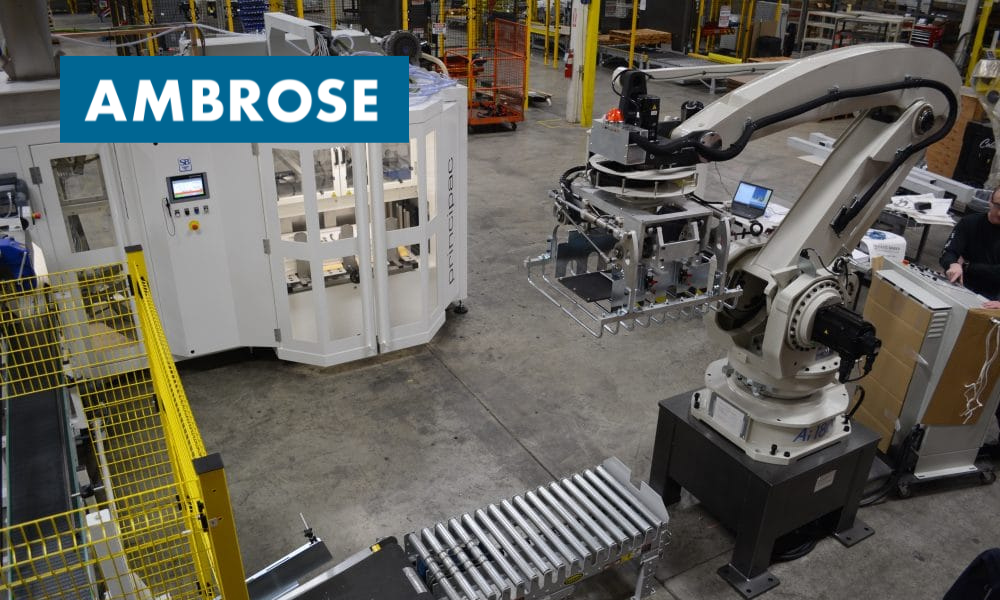What Is Process Automation in Manufacturing?
As business and technology continue changing year after year, manufacturers have a growing need for automation and digital transformation. In the manufacturing industry, automated technology is one of the most critical factors for reducing costs and disruptions while improving efficiencies. Since the needs of manufacturers continue to grow more complex over time, manufacturing businesses need automation solutions that solve problems and streamline outcomes. It is important to understand what exactly manufacturing automation is, what all it encompasses within day-to-day operations, why it is so valuable, and how process automation solutions are revolutionizing manufacturing.

What Are the Types of Manufacturing Automation?
There are several different types of manufacturing automation involving a large variety of equipment and technology. Some examples of industrial automation include numerically controlled equipment, computer-aided manufacturing, flexible manufacturing systems and industrial robots. Production facilities in automotive, chemical, food processing and other industries leverage these approaches within their assembly lines, factory floors, production processes and other key parts of their operations.
Automation Highlight: Industrial Robotics
Industrial robots are gaining popularity in process automation for repetitive tasks that are potentially cumbersome and/or dangerous for humans. This type of solution is commonly used for painting, welding, assembling, cutting and material handling within a manufacturing environment. Some industrial robots have the ability to work 24/7 and meet high production or precision demands. Although their initial cost may seem high, the ROI they provide is attractive enough that many more manufacturers are using them today than in years past. In many cases, a high-producing robot’s ROI timeframe may be as short as about six months.
Why Do We Need Automation in Manufacturing?
Since 2020, more manufacturers have been realizing the fragility of the supply chain and reevaluating the use of human workers for tasks that can be completed through manufacturing automation. Innovative automation solutions give facilities more resiliency for weathering unforeseen circumstances that would otherwise impact their workforce and throughput when it comes to their production lines.
Because of the precision and consistent abilities of manufacturing automation, production facilities can reduce several issues related to human error. The improvement in quality can have many potential benefits. Machines can also accomplish the tasks they are designed to perform in a shorter amount of time, which helps organizations optimize output while they simultaneously reduce errors.
Automation is also necessary to protect workers and give them more fulfilling roles. Dangerous projects like cutting metal or similar tasks create serious injury risks. Also, long days of repetitive motions can lead to other types of injuries, as well as mental and/or physical exhaustion. With manufacturing automation, there is less need for requiring workers to perform arduous tasks. They can instead focus on other duties that require human abilities, and that can make their roles more engaging. In turn, creating more fulfilling employee roles can help improve organizational morale and culture, as well as reduce turnover.
What Are the Benefits of Automation in Manufacturing Processes?
With the modern benefits of robotics, machine learning and computer systems, technology can be programmed to conduct a variety of tasks. This versatility is a great benefit of manufacturing automation. Beyond completing production tasks, automation advancements include the integration of digital information. This can be useful in managing inventory systems, scheduling and more. These are the top benefits of manufacturing automation:
- Improved workplace safety
- Enhanced part and/or product quality
- Reduced labor costs
- Increased sales volume
- Shorter lead times
- Ability to accomplish certain tasks that are impossible with manual labor
- Increased productivity
- Access to valuable, real-time information
Innovative and Customized Manufacturing Automation Solutions for Your Facility
Whether you are already taking advantage of manufacturing automation or are considering implementing it for the first time, Ambrose is here to help by designing custom robotics and automated systems that fit your needs and overarching business processes. Improving workflow is a constant need for production facilities, and our solutions are designed to increase profitability, efficiency and output. An expert from Ambrose will be happy to discuss your needs and our automation technology solutions with you. Reach out today.
